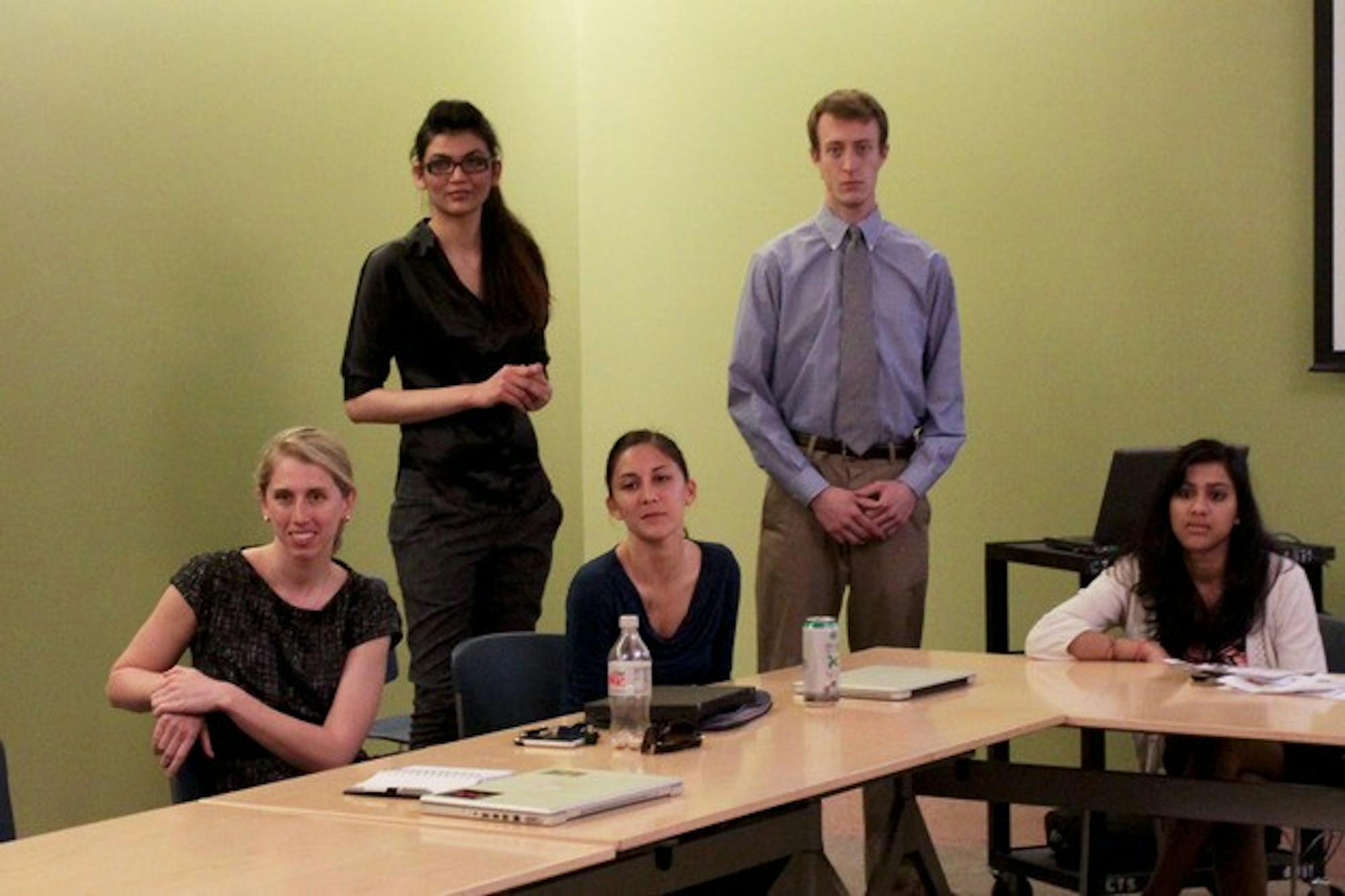The third annual competition presented student teams with plausible global scenarios and asked them to provide recommendations that ranged from business management to health care analysis to international law, The Dartmouth previously reported.
Two teams from Emory earned first and second prize, while the University of California, San Francisco also earned an honorable mention.
This year's hypothetical problem required students to advise an imaginary director of programming for the East Africa regional office of the United Nations High Commissioner for Refugees, Nutt said. The team had to develop a way to reallocate resources given a 50 percent cut in the office's budget.
The team chose to tackle the issue by developing pilot projects to satisfy the needs of the region, Mujumdar said.
Like the winning team, the Dartmouth group approached the problem with an unbiased view of each East African refugee camp and refrained from basing its recommendations on solely business and financial concerns, Azmat said.
"We understand that we cannot make sweeping budget cuts across the camps, because every one has different needs, different geographic locations, different demographics," Azmat said. "If we're trying to allocate a limited budget, we must know where these resources will be most effective."
The opportunity to present their research to faculty members and peers on campus was extremely valuable, Cheung said.
"It's a great opportunity to share with people today who gave us input about how we did, and a really good experience for students to take part in," Cheung said.
Wednesday's presentation allowed the group to resume the student-led conversation regarding global health delivery that began at the case competition, Nutt said.
"We were so grateful to have the chance to share our ideas with our peers and mentors and to be challenged to think critically about important questions related to vision, implementation and equity in global health delivery," he said.
The team developed and recommended four pilot programs for the competition a maternal health audit system called MAISHA, a water purification system called SUNsible and a conditional food-cash transfer program called FASH, a community-driven sports-education program modeled on Grassroots Soccer, Nutt said.
The MAISHA program would encourage women to give birth in health centers rather than in their homes in order to decrease maternal and infant mortality, he said.
Under FASH, the UNHCR in collaboration with the host country's government would provide financial and material incentives to women for accomplishing social and health goals like vaccinating their infants, taking advantage of free prenatal care and enrolling their daughters in primary and secondary school, according to Nutt. SUNsible, a water purification and vocational training program, would provide employment opportunities and clean water to communities by training refugees to use simple technology to create solar panels, Azmat said.
The sports-education program would utilize a popular sport for community development with the aim of improving HIV education and expanding sexual assault and violence prevention, according to Mujumdar.
"We're putting into place programs that will really affect the problems that we're seeing," Nutt said.
The team's proposal highlighted dynamic data collection, which involves not only gathering information "on the ground," but also disseminating information to other citizens, Nutt said.
The scenarios had real-world applicability despite their fictional nature, Mujumdar said.
"Even though this was a case competition, it translates so much into the real world," Mujumdar said. "We really took what we learned at Dartmouth specifically to help us in our case."
Nutt acknowledged that while the competition has expanded team members' analytical skills, the team is not yet experienced enough to jump to conclusions about real-world solutions.
"It was a great opportunity for self-reflection and to learn from each other and from the experience, but we're not prescribing ourselves to be ready to go out into the world and know how to do this," Nutt said.
The students' academic background which range from economics to engineering helped students think critically and develop interdisciplinary perspectives regarding the evidence on which they based their interventions, according to Arensman.
"Everyone brought something to the table," she said. "We questioned each other and we certainly learned a lot."
The competition at Emory attracted over 120 students from 13 universities across the country, The Dartmouth previously reported.




